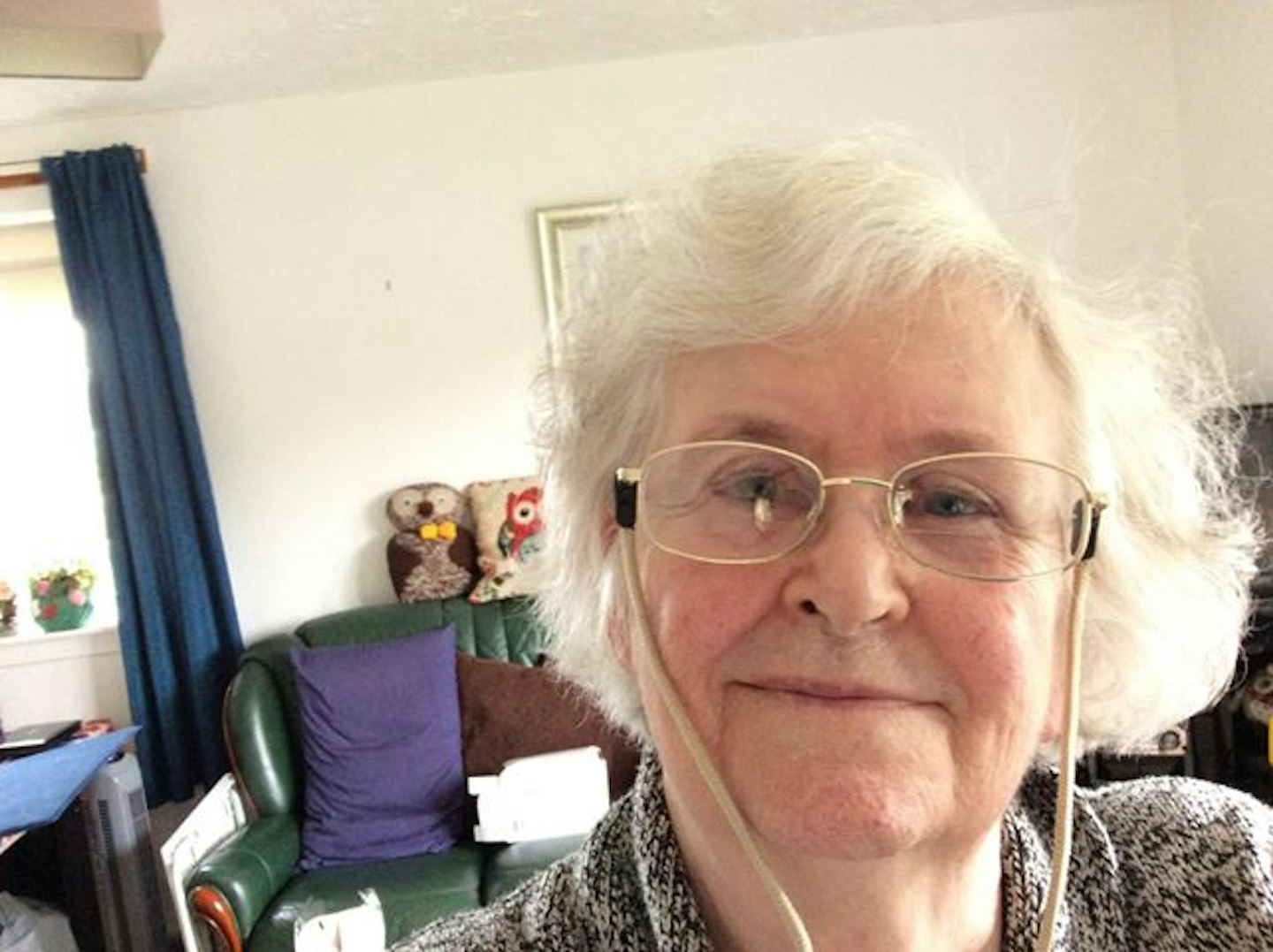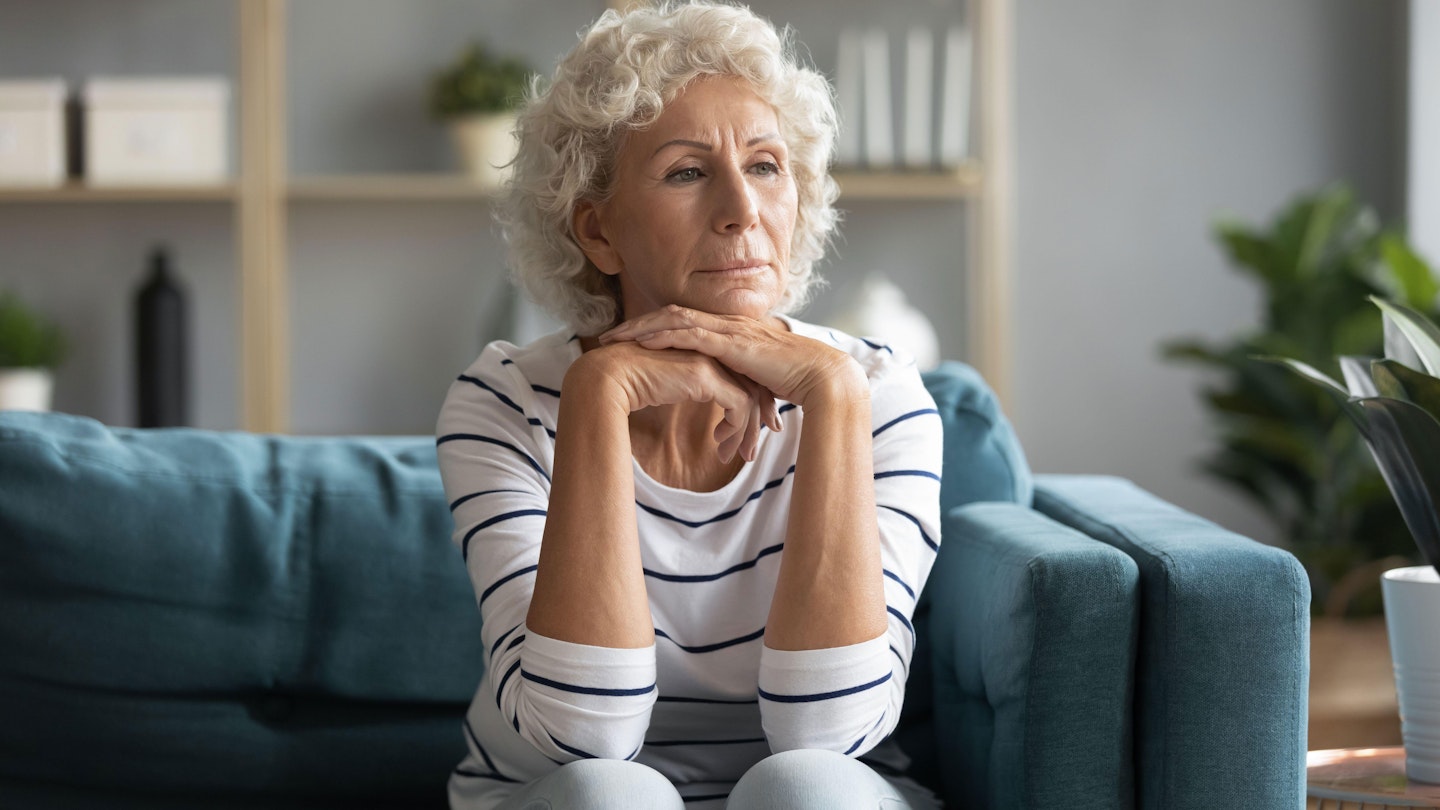Baby boomers are portrayed as the most resilient generation yet. But just how has the coronavirus lockdown affected the mental health of the retired? On the back of Yours Minds, a survey looking at mental health in older people, we asked two women to share their experiences.
As parents get to grips with home-schooling and workers try to master the fine art of doing their jobs from the lounge, there’s one section of society we’ve heard surprisingly little about during the coronavirus pandemic: the retired.
Of course, there’s been the worry for those in care homes and the fear for older people with underlying health conditions who are at greater risk from the effects of Covid-19 in the news. But what about the experience of the millions of people who are simply retired? How has the lockdown impacted how they feel and think?
There’s perhaps a common myth that anyone with a bus pass also gets a free exemption card to mental health issues. After all, this is the generation of the great ‘stiff upper lip’, many of whom might have lived through war days or were brought up by parents with that fierce ‘keep calm and carry on’ spirit.
However, real life shows a different story. Yours Minds, a mental health survey published by Yours magazine this week, showed that well over half of respondents had had a mental health issue in their lives, with 70% experiencing depression and 62% experiencing anxiety. It seems this stereotype of the ‘resilient’ retired isn’t quite as accurate as once thought.

Mental health campaigner and co-founder of the Where’s Your Head At? campaign Natasha Devon MBE said: "When I do talks for young people in schools and colleges, I’ve lost count of the number of times an older parent, grandparent or teacher has approached me afterwards and told me they wished they’d had something like that when they were at school. Often, they have dealt with decades of depression, anxiety or eating disorders in silence. This idea that mental health issues are ‘new’ just isn’t true’."
When it comes to dealing with the effects of lockdown then, perhaps this group shouldn’t just assumed to be coping along fine. After all, Age UK and Silverline have already reported a boom in calls from older people, from those in their mid-50s to those over 100, all struggling to deal with how the lockdown has affected so many parts of their lives.
That’s why we wanted to shine a light on this often-under-represented group in the debate about mental health and investigate how they are dealing with the coronavirus lockdown, with the help of June and Margery’s stories.
‘It’s like grieving all over again’
June Fletcher is a retired shop assistant who lost her husband two years ago. When giving up work and later bereavement upended her life, she threw herself into a busy routine of volunteering, fitness classes, picking up her granddaughter from school and regular day trips out. Lockdown, however, has put paid to all of that and she’s found herself feeling lost once again.
“I don’t like to grumble as I know many people have it far harder than me, but I am finding everything very difficult, especially being on my own,” she says. “After my husband died I built up this new life for myself and would enjoy sort of talking to him in my head about how I’d spent my days. In lockdown, though, I feel like I’m having to start all over again. It’s almost set me back two years.”

On the worst days, June says she’s felt miserable, especially when the sun is shining and she’d normally be straight out of the house to see her family or go somewhere nice. Day-to-day, though, she says she’s mainly finding the loss of her routine unsettling and her mind keeps wandering. “I can’t seem to settle my mind to doing any one thing and feel very distracted. I know you can do exercise classes and things online but I like doing things for real so for me, it’s just not the same.”
June says she thinks there might be a common perception that lockdown for people in retirement is no great upheaval, although she feels very differently. “Some people might think you’ve had your working life and are retired now, so you don’t really have to do anything anyway but a lot of us do. I love the time I normally spend volunteering with a lunch club and at a National Trust property and I miss it so much.
“Retired people don’t just sit and home and watch TV so lockdown is just as disruptive for us,” she says. “Also while the generations above us did live through the war, at the end of the day everybody is human and we all feel the effect of this lockdown.”
As soon as lockdown lifts, the first thing June is looking forward to is giving her 10-year-old granddaughter a great big hug. “This experience has definitely made me appreciate things more and I won’t take anything for granted when we go back to normality.”
‘Video calling family really helps my mood’
For Margery Bromley who is over 70 and living with underlying health issues she’s been in total isolation in her block of flats since March 16.
“Some days I can just get on with it but other days I could tear my hair out or just sit and cry all day,” she says. “When I watch the news I just feel heartbroken and I miss my family so much.”
Like June, Margery’s also struggled to focus her mind on any one thing and often feels distracted and unsettled, finding it takes her weeks to do a piece of knitting she’d normally have done in days.
As she cannot even leave the house to go shopping, Margery says she’s found it an added pressure and great source of upset and frustration to have to rely on her daughter to bring round essentials. “I haven’t been able to book a delivery slot from my supermarket since lockdown,” she says. “One night I even sat up until midnight as I heard that’s when new slots would be released. But at 11.58 I was blocked off the website and when I got back in at 12.02 all the slots were gone. It made me feel so angry. I just feel there’s no support and if it wasn’t for my daughter I’d be really stuck.”

Talking of family, Margery says the one thing that always lifts her mood when she’s feeling down is chatting to loved ones over video calls. “I have an iPad and could do odd things with technology before the lockdown, but now I can video call to see my grandchildren and great-grandchildren and my daughters and I have a group chat every week. It really does help my mood because I know they’re alright and they know I’m alright. I still can’t wait to hug them in person though when this all comes to an end.”
Natasha added "Connection and community are key components for wellbeing, whatever our age. People who are employed tend to underestimate how much connection they feel to colleagues. As June and Margery’s stories show, retired people often rely on having these needs fulfilled by friends and family, so not being able to see them during lockdown feels doubly hard’."
Natasha’s tips for retired people in lockdown:
-
Remember, it’s not ‘indulgent’ or ‘weak’ to be feeling the pressure at the moment. In fact, if you’re not feeling anxious you aren’t paying attention! Disregarding what you’re feeling and ‘soldiering through’ doesn’t make the problem go away – You just store it up for another day. If you need to cry, punch a pillow, or pick up the phone to a friend to have a good old moan, that’s perfectly okay.
-
Anxiety and stress can have an impact on your physical wellbeing as well as your mental health. To combat this, you need to spend extra time on self-care. Try to stay as active as possible, even if it’s doing some stretches indoors.
-
If you have a garden, this is the ideal time to get out there – Not only will gardening keep you physically active, studies show spending time with nature improves our wellbeing.
-
Everyone is reaching out more than usual, right now. Take the opportunity to have a phone call or Facetime session with a family member or friend you haven’t spoken to in a while. You could even reignite the lost art of letter writing!
Read related articles:
Start your journey to better mental health in five easy steps
James Middleton's new documentary onhow his dogs helped his mental health
